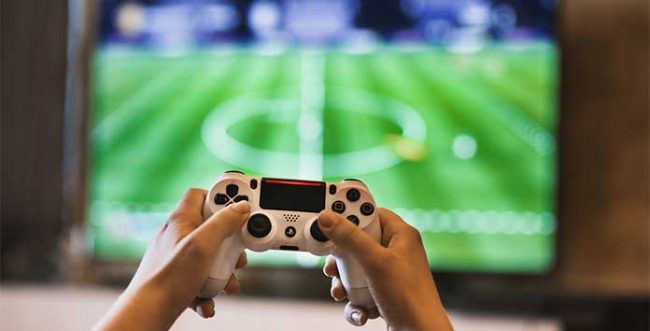FIFA is a popular soccer video game that allows players to build and manage virtual teams. In today’s dynamic world, where collaboration and teamwork play pivotal roles in personal and professional success, students who engage in FIFA gaming can develop valuable team cooperation skills. Through team-building exercises, students participating in FIFA can strengthen their bonds, enhance communication, and learn to work harmoniously towards common goals. Here are some strategies to promote team cooperation through the FIFA game and how students can benefit from such a gaming experience.
Team Formation
The process of forming FIFA teams allows students to experience the nuances of team dynamics. They learn to consider individual strengths and weaknesses when assigning roles, fostering a spirit of cooperation and mutual respect. Effective team formation ensures a balanced team composition, encouraging students to work in tandem to leverage their combined skills.
As they collaborate in constructing their virtual squads, players discover the significance of complementing each other’s abilities, leading to a more harmonious and successful gameplay experience. This understanding of team formation can extend beyond the gaming world. It can impact how students approach group projects and collaborative efforts in their academic and professional lives. For instance, this is when students can ask others, “Can you write my college paper for me in return for math project assistance?” knowing where their team’s strengths and weaknesses are.
Communication
It is hard to overestimate the significance of effective communication in a team sport like football, even when it is a virtual sport. Players have to learn to use their voices to express their onions, encourage others to follow, inspire, and motivate, as well as to coordinate strategies, share information, and support each other during the game.
Plus, after each match, teams should analyze their performance collectively. This involves discussing what went well, what could be improved, and identifying areas where better cooperation could lead to better results. All these essential parts of teamwork are only possible with strong communication skills.
Goal Setting
Setting specific goals within the FIFA context gives students a sense of purpose and direction. Whether aiming to win a tournament, improve their ranking, or master particular skills, these goals provide motivation and focus. Students must communicate, plan, and work together cohesively to attain their objectives.
These processes alone, plus the fact of achieving these goals, foster a collective sense of accomplishment, reinforcing the importance of collaboration. Striving for and meeting those goals encourages students to support one another throughout their gaming journey. It also teaches what it truly means to be a team.
Team Challenges
Friendly team challenges and mini-tournaments within the FIFA game promote healthy competition while encouraging teamwork. These events allow teams to showcase their cooperative skills and create a fun and competitive environment. Students learn to strategize as a team, analyze opponents’ tactics, and adapt their gameplay accordingly.
Overcoming these challenges create a sense of unity as players strive to achieve shared goals. During team challenges, students learn to collaborate under pressure, improve their decision-making skills, and develop resilience, all of which are crucial components of successful teamwork.
Conflict Resolution
Students must find effective ways to resolve conflicts during the game. Not only do they have to find practical solutions, but they have to do it fast and on the go. No one stops the game for a lengthy discussion. These conflicts will occur during the event, leaving players no choice but to find constructive ways to resolve them without worsening the situation. Such a need calls for constraint, strong communication skills, unbiased opinions, and focus on what is best for the team. This could include listening to each other’s perspectives, compromising, and finding solutions together.
Team-building Exercises
Engaging in FIFA gaming offers opportunities for students to partake in team-building exercises outside the virtual realm. Activities such as sports, group discussions, or problem-solving games can strengthen the bond among players just as much as among students. These exercises encourage open communication, foster trust, and create a supportive environment where students can learn to collaborate effectively.
In addition, as participants bond through shared experiences, they develop a deeper understanding of each other’s personalities and working styles. These discoveries help enhance their overall team dynamics, fostering a sense of unity and collaboration right from the start.
Celebrate Success
Each successful game of FIFA shows the importance of teamwork and well-established communication and team roles within it. Thus, players learn in practice how valuable team play is and what results you can achieve with it. As a result, each victory in FIFA is another celebration of teamwork, your abilities as a teammate, and your participation in creating a healthy environment during work.
Recognizing and celebrating these achievements allows players to apply the same lesson in the real world. It is an impactful moment of positive reinforcement that encourages people to invest in cooperation and communication skills and rely on teamwork even more. Plus, celebrating success with a team is always much more fun than solo.
Wrapping up
Students can enhance their cooperative skills, communication, and understanding of teamwork by wrong, good team players in their FIFA matches. Indeed, these virtual life lessons can spill over to players’ personal and professional lives. After all, what can be valuable in virtual games can also be so in real-life scenarios. So, players ready to incorporate effective cooperation strategies into the FIFA gaming experience will also benefit from it in real life.
